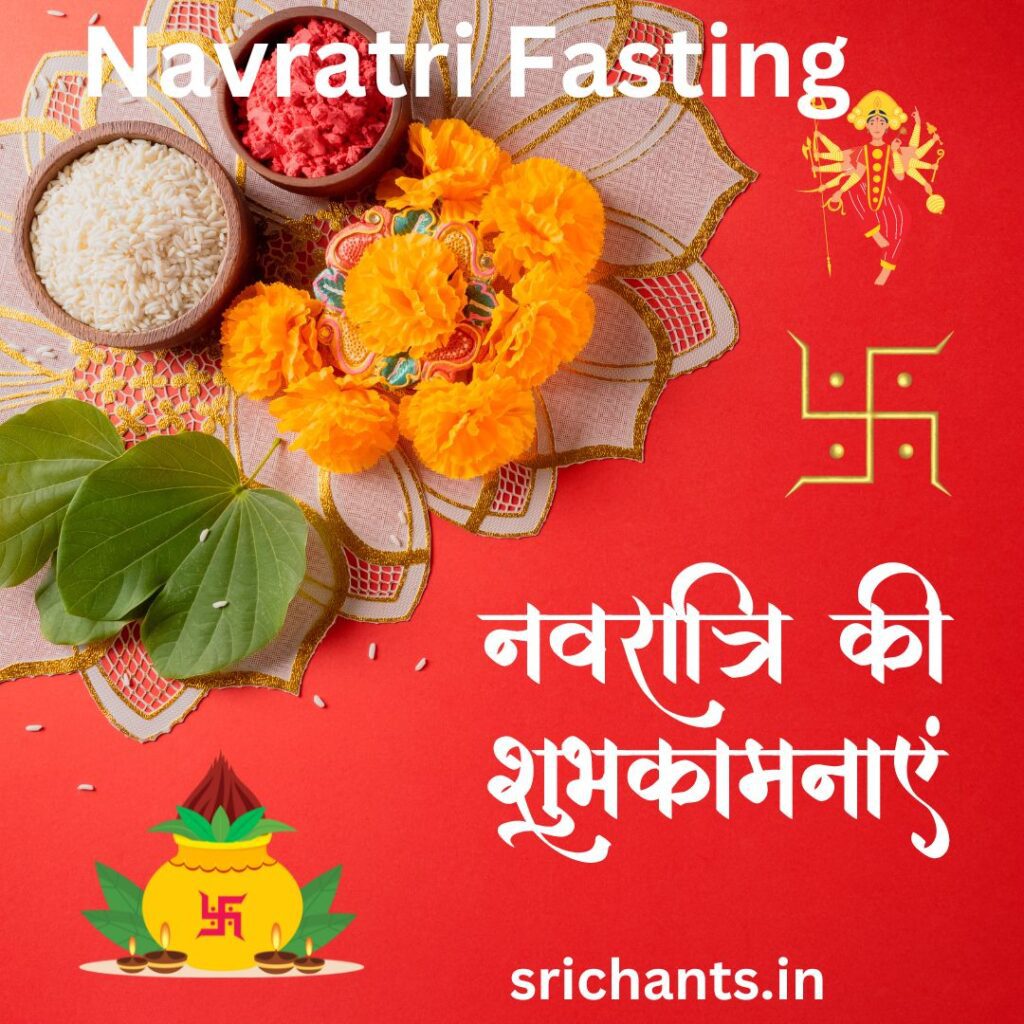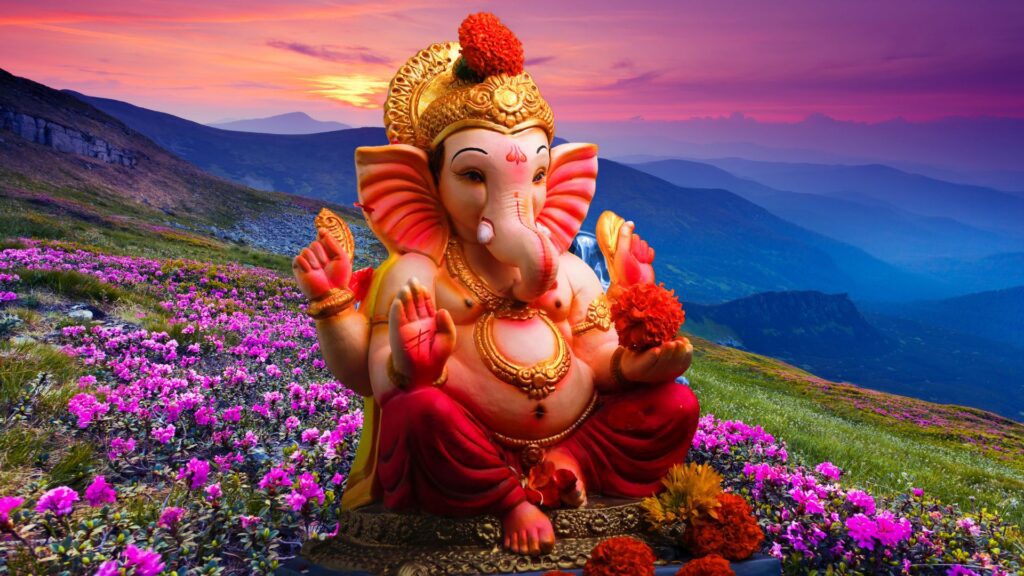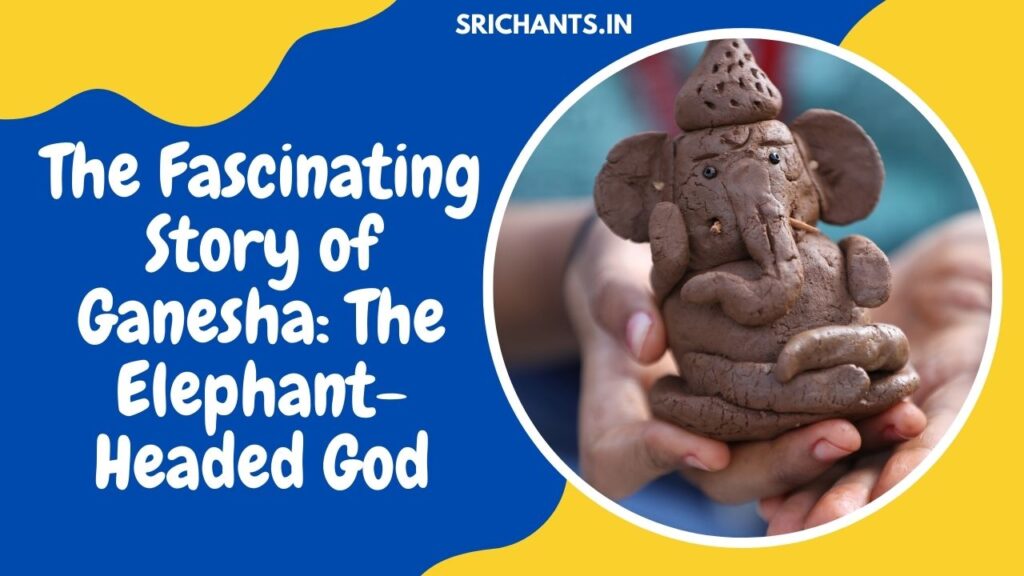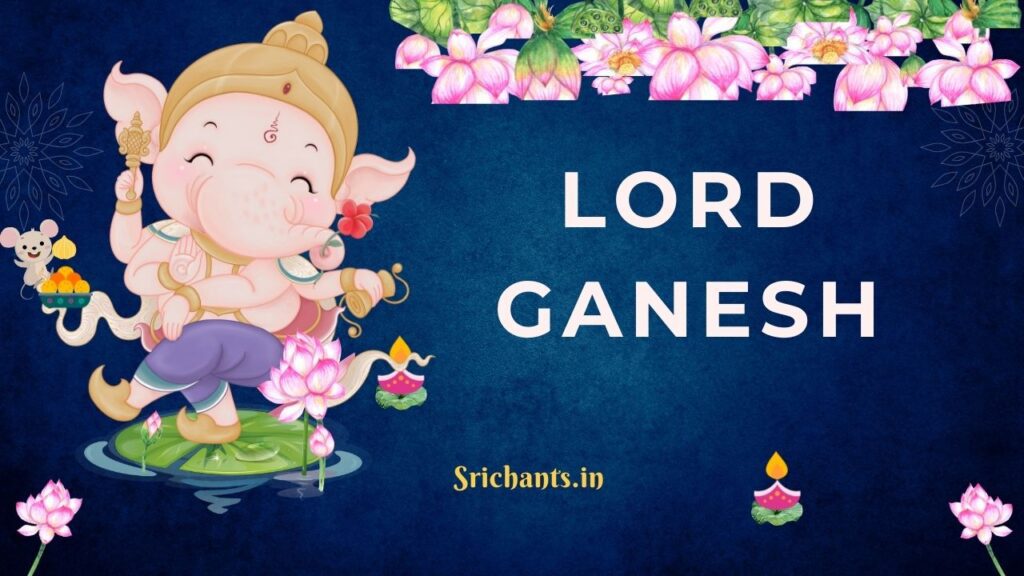Navratri Fasting: Tips for a Healthy and Spiritual Experience
Introduction
Navratri, a nine-night festival observed in India, is a period of spiritual reflection, prayer, and fasting. Fasting during Navratri is not merely a matter of forgoing meals; it has a more profound meaning and provides a plethora of health advantages. This exhaustive guide will delve into the reasons why fasting during Navratri is more than just a dietary practice and offer practical advice to help you have a more spiritually fulfilling and healthier fasting experience.
The Spiritual Connection of Fasting
Fasting during Navratri enables individuals to establish a connection with their spiritual side and attain a sense of inner tranquility. It provides an opportunity to concentrate on prayer, reflection, and the cultivation of one’s faith, as well as a respite from the daily routine. Individuals can enhance their spiritual connection and experience a sense of tranquility and harmony by refraining from consuming sustenance.
Cleansing the Body through Fasting
Additionally, fasting during Navratri provides physical advantages by permitting the body to detoxify itself, in addition to its spiritual significance. When we fast, our body is afforded the opportunity to eliminate toxins and waste, akin to a cleansing crew operating within us. This detoxification process has the potential to improve digestion, strengthen the immune system, and improve overall well-being.
Managing Weight through Fasting
Navratri fasting can be a beneficial instrument for individuals who are interested in managing their weight. The body can potentially lose weight by utilizing stored fat for energy during fasting. Individuals can foster a positive body image and maintain a healthy weight by adhering to the fasting guidelines and consuming nutritious foods.
Boosting Brain Power with Fasting
The cognitive advantages of fasting have been identified, such as enhanced mental acuity and brain function. Fasting provides our brain with a boost, enabling it to think more effectively and operate more efficiently. Productivity, focus, and overall mental well-being can be positively influenced by this improved cognitive function.
Resetting Eating Habits
The opportunity to break poor food habits and establish healthier eating patterns is provided by fasting during Navratri. Individuals can recalibrate their dietary choices by avoiding specific foods and prioritizing nutritious alternatives. This reset has the potential to result in long-term enhancements in one’s eating patterns and overall lifestyle.
What to Do During Navratri Fasting
It is imperative to be aware of the foods to incorporate and those to exclude in order to optimize your Navratri fasting experience. The following is a comprehensive list of the activities that should be undertaken during the Navratri fast:

1. Eat a Variety of Fruits
It is strongly advised to consume a diverse selection of fresh produce during the Navratri fast. Apples, avocados, oranges, pomegranates, and other seasonal fruits are all excellent options. These fruits are a source of essential vitamins, minerals, and fiber, which will help you remain energized throughout the day.
2. Include Nutritious Vegetables
During Navratri, it is customary to ingest a variety of vegetables, including bottle gourd, potato, pumpkin, colocasia, yam, sweet potato, lemon, honey, cucumber, tomato, carrot, raw papaya, and spinach. These vegetables are rich in fiber, low in calories, and nutritious, which provides a variety of health benefits.
3. Incorporate Dairy Products
Dairy products, such as yogurt and milk, are exceptional sources of calcium and protein. By incorporating them into your fasting diet, you can simultaneously promote bone health and muscle function while meeting your nutritional requirements.
4. Snack on Nuts and Seeds
Pumpkin and sunflower seeds, as well as nuts like hazelnuts and almonds, are excellent snack options during the Navratri fast. These foods are rich in nutrients and offer a balanced source of energy, protein, and healthy lipids, which will help you feel full and satisfied.
5. Opt for Gluten-Free Grains
Water chestnut flour (singhare ka atta), buckwheat (kuttu), and amaranth (rajgira) are gluten-free cereals that are frequently consumed during Navratri. These grains are a nutritious option for fasting due to their high fiber, vitamin, and mineral content.
6. Enjoy Herbal Teas
During the Navratri fast, herbal beverages such as ginger or mint may be consumed. In addition to hydration, they provide a variety of health benefits, including the enhancement of immunity and the facilitation of digestion.
By adhering to these dietary recommendations, you can guarantee that your fasting experience is both nutritious and enjoyable.
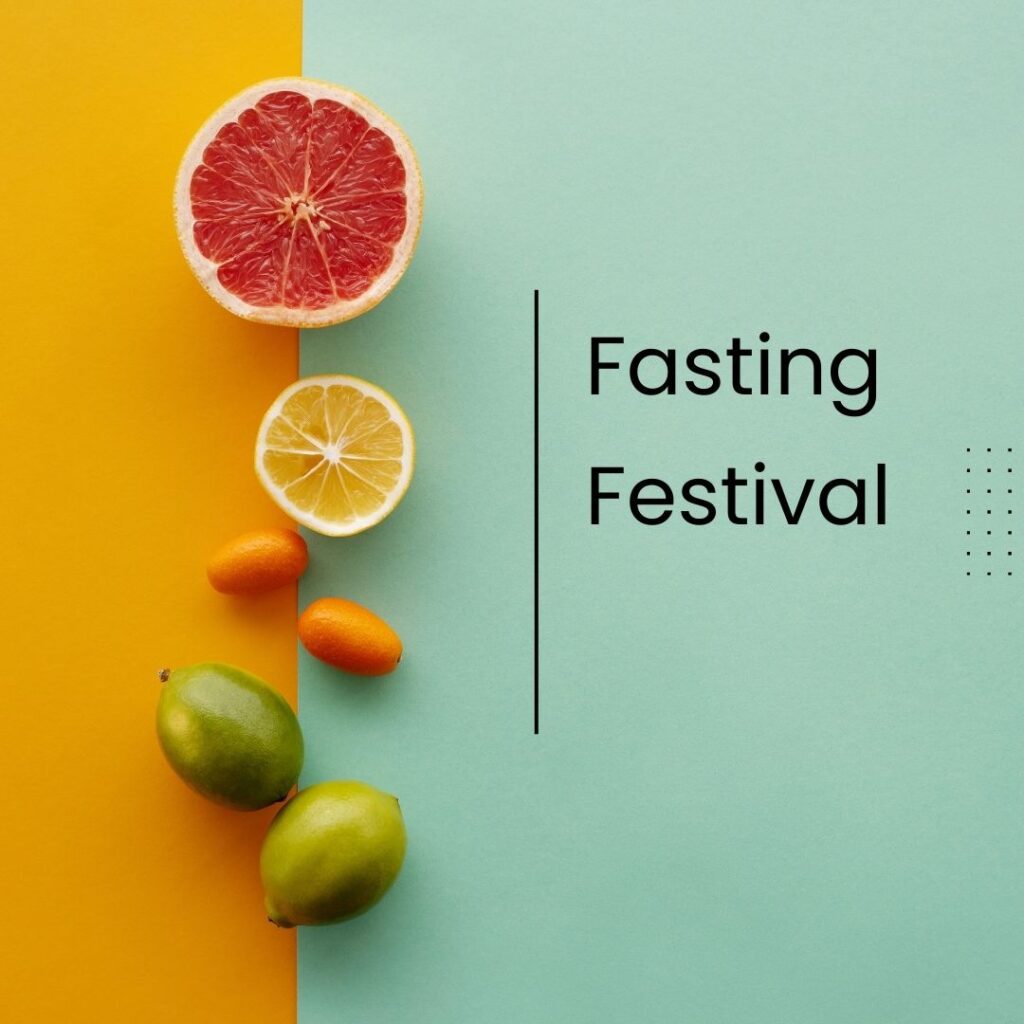
What to Avoid During Navratri Fasting
It is equally crucial to be aware of the foods to avoid in order to optimize your Navratri fasting experience. During the Navratri fast, it is advisable to avoid the following foods:
1. Limit Sago Consumption
While sago (tapioca pearls) is frequently consumed during Navratri fasting, it is important to consume it in moderation.. Digestive discomfort, flatulence, and other digestive issues may result from excessive sago consumption.
2. Be Mindful of Potatoes
Although potatoes are permissible during the Navratri fast, they should be consumed in moderation. If consumed in excess, they are starchy vegetables that may result in a high carbohydrate load, which could contribute to energy fluctuations and blood sugar spikes.
3. Minimize Fried Foods
Fried foods, which are frequently ingested during fasting, are often high in unhealthy fats and calories. The consumption of fried foods in excess can result in digestive distress and have a detrimental effect on one’s overall health. It is advisable to reduce the consumption of fried treats and choose healthier cooking methods.
4. Choose Healthy Preparations
Choose healthier culinary methods, such as roasting, boiling, steaming, or grilling, when preparing foods during Navratri fasting. This will assist in the preservation of the nutritional value of the foods and reduce the consumption of unhealthy lipids.
5. Maintain Nutritional Balance
An imbalanced fasting diet can be the consequence of excessive consumption of sago, potatoes, and sautéed foods. In order to guarantee that you consume a diverse array of nutrients during the fasting period, it is crucial to incorporate a diverse selection of foods. To ensure a well-rounded nutritional intake, include fruits, vegetables, dairy products, nuts, seeds, and gluten-free grains.
A healthier and more pleasant fasting experience can be achieved by refraining from consuming these foods and making thoughtful decisions.
Enhancing Your Fasting Experience
There are numerous activities and practices that you can participate in to improve your spiritual and overall well-being while fasting during Navratri. The following are a few recommendations:
1. Prayer and Reflection
Invest time in silent reflection or prayer to cultivate your spiritual side. Participate in activities that foster a sense of serenity and connection and help you become more connected to your faith.
2. Acts of Kindness and Charity
Utilize this fasting period to perform acts of compassion and make a positive impact on the welfare of others. Spread positivity and make a positive impact on the community by assisting those in need, volunteering, or supporting charitable causes.
3. Mindfulness and Self-Improvement
Engage in self-improvement activities and maintain a state of mindfulness by being completely present in the moment. This may encompass the acquisition of new skills that facilitate personal development, as well as the practice of meditation or journaling.
4. Community Involvement
Engage in group activities or rituals with your family or community. Participate in religious ceremonies, attend cultural celebrations, and establish connections with individuals who share your beliefs and principles.
5. Cultivate Positivity
Avoid negative influences in both your beliefs and actions. Engage in conversations that are uplifting, surround yourself with positive individuals, and concentrate on the development of a positive mindset.
6. Appreciate Aesthetics
Take the time to appreciate cultural expressions, music, and art that inspire and bring pleasure. Engage in creative activities that nourish your psyche, attend cultural events, or listen to devotional music.
7. Honor Fasting Traditions
Honor and respect the fasting customs and rituals of your faith or culture. Immerse yourself in the spiritual significance of the festival by embracing the traditions associated with Navratri and participating unreservedly.
8. Pursue Educational Endeavors
Apply this fasting period as an opportunity to broaden your knowledge and pursue educational objectives. Engage in intellectual discussions, attend online courses, or read books that stimulate your mind and foster personal development.
By integrating these practices into your fasting experience, you can enhance its spirituality, meaning, and fulfillment.
Conclusion
Navratri fasting is not merely a matter of forgoing meals; it is a period of personal development, spiritual connection, and interior cleansing. Improved physical health, mental clarity, and a deeper sense of spirituality can be achieved by adhering to the recommended dietary guidelines and abstaining during Navratri. It is important to pay attention to your body, seek the advice of a healthcare professional if necessary, and make decisions that are consistent with your personal beliefs and requirements. May your fasting journey be characterized by spiritual enlightenment, contentment, and health, as you embrace the spirit of Navratri.
#NavratriFasting #Navratri #Fasting
